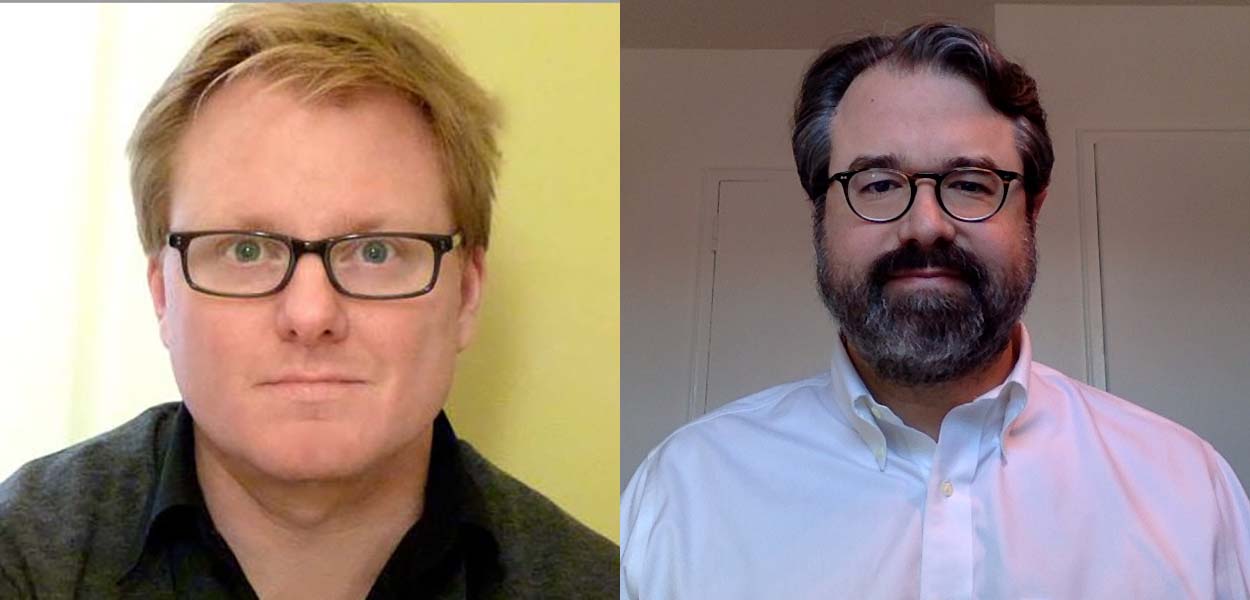
The Institute for Philosophy and the New Humanities to Highlight Compelling Work in Contemporary Philosophy and the Humanities
The Institute for Philosophy and the New Humanities is a new institute at The New School for Social Research (NSSR) with the goal of “extending humanistic inquiry in new directions to foster work that critically engages the current moment” in new and dynamic ways.
“The humanities have, unfortunately, been on the defensive of late — at times, it has felt like we need to justify our very existence,” says Zed Adams, an associate professor of philosophy and one of the institute’s founders and co-directors. “The Institute was formed as a way of making the value of the humanities manifest by highlighting new work that extends humanistic inquiry in new directions.”
The institute was established by Adams; Paul Kottman, professor of comparative literature and chair of liberal studies at NSSR; and Markus Gabriel, chair of epistemology and modern and contemporary philosophy and director of the International Centre for Philosophy at the University of Bonn. It has received financial assistance from the Udo Keller Foundation. The seminars will be open to both New School students and students from the University of Bonn.
Adams says partnering with the University of Bonn was a natural fit for The New School and describes Gabriel as one of the most prominent young philosophers working in Germany today.
“He is able to communicate difficult — and at times outlandish — philosophical ideas to a general audience, without watering them down,” Adams says.
The institute’s first intensive seminar, Artificial Intelligence and the Human, will take place October 19–23, and uses the history of artificial intelligence to explore intelligence itself, and what we as a society are attempting to build when we aim to create something that is “intelligent.” It will be co-taught by Adams and Gabriel and will feature keynotes by prominent scholars: Jessica Riskin, a professor of history of science at Stanford; Brian Cantwell-Smith, professor of artificial intelligence and the human at the University of Toronto; Susan Schneider, distinguished professor of philosophy at Florida Atlantic University; Nell Watson, a tech ethicist; and Jens Schröter, chair of exegesis and theology of the New Testament and New Testament apocrypha at Humboldt University in Berlin.
According to the seminar description, “the search for artificial intelligence has tended to assume that intelligence is a fixed goalpost, static and unchanging, such that if the search is successful, it can be achieved once and for all.”
Students at the seminar will read and discuss the works of writers, several of whom will be the keynote speakers, who challenge this assumption and in both seminars will learn strategies for defending their opinions in more effective ways than just presenting a collection of facts.
Next fall, from September 20–24 2021, the institute will present Objectivity in the Humanities, featuring keynotes from both Kottman and Gabriel.
Kottman, another cofounder and director of the institute acknowledges that in recent decades, the humanities have come under fire from the scientific community for what appears to be “less-than-objective knowledge claims.” He adds that the field of humanities has to accept its own responsibility for creating the impression that it is less relevant than the natural sciences.
“As New School founder John Dewey pointed out a century ago, democracy depends especially upon education in the humanities,” says Kottman. “If both the humanities and democracy are in crisis these days, then this is because these two crises are intimately connected. Our institute can invigorate both democratic culture and the humanities and philosophy by galvanizing awareness of their mutual dependency. The humanities and democracy must be pursued together, if either is to be pursued at all.”